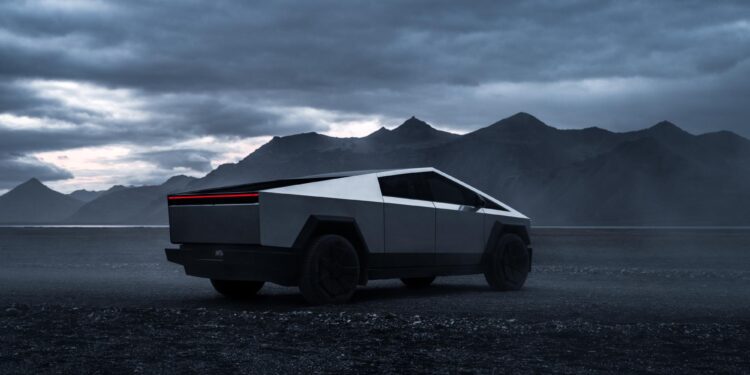Tesla performed its in-house crash testing of the Cybertruck, and because it was in compliance with Federal Motor Vehicle Safety Standards, the car can be delivered to customers. However, it does not have official safety ratings from the National Highway Transportation Safety Administration (NHTSA), and the Insurance Institute of Highway Safety (IIHS) has no plans to test the vehicle.
There’s an explanation for all of it, however.
The Cybertruck’s Situation with the NHTSA
The NHTSA does not “approve” new vehicles, but it establishes performance requirements that comply with FMVSS. Manufacturers certify compliance with these standards when they crash test internally. Some vehicles are crash-tested directly by the NHTSA, but the Cybertruck is not one of these vehicles. At least not yet.
According to a 2020 report from Consumer Reports, “97 percent of all new vehicles sold are crash-test rated by one or both of the independent organizations.”
However, as the Cybertruck’s preliminary safety ratings have been added to the NHTSA database, they do not include any specific ratings in terms of crash ratings. The only ratings are safety features, such as Front Collision Warning, Lane Departure Warning, Crash Imminent Braking, and Dynamic Brake Support, which all meet performance criteria.
The Cybertruck is not mentioned on the 2024 list of vehicles to be included in the agency’s five-star safety ratings tests.
This means the Cybertruck will not have official ratings from the NHTSA until the truck is tested by them directly, per the agency, which clarified its plans to Teslarati on Monday.
The Cybertruck’s Situation with the IIHS
The IIHS also has no plans to test the Cybertruck, the organization told us.
“Automakers do perform their own crash tests to ensure compliance with federal regulations and for internal purposes,” Joe Young of the IIHS said. “Regardless of whether the [Cybertruck] is ever tested by IIHS or for NHTSA’s NCAP program, it will still need to meet federal motor vehicle safety standards, which require certain crash test standards.”
The Cybertruck has done this, and the recommendation from the NHTSA and IIHS is more or less another nod of confidence for any vehicle that is tested. Tesla has received five-star ratings for its vehicles from the NHTSA in the past.
Young also said the Cybertruck could be tested by the IIHS in the future. However, that decision will be made after it can assess “the level of general consumer interest in the vehicle.” If it is popular enough, the IIHS may test it.
Tesla ‘highly confident’ Cybertruck is safer than other trucks: Elon Musk
Additionally, Tesla could reach out to the IIHS and nominate the Cybertruck for testing:
“The testing nomination process allows automakers to essentially reimburse us for the cost of the vehicle(s) to get it tested more quickly than we might otherwise do so. Either scenario would require vehicle availability, however,” Young said.
The IIHS also has a verification test program, which allows automakers to submit in-house data and results of crash testing. Due to limited funding and time, the IIHS cannot independently test every consumer vehicle on the market, so it can use OEM data to do so. The program is regularly audited to ensure accuracy.
However, the Cybertruck is not currently able to be a part of the verification test program. Young explained, “As a new model, the Cybertruck wouldn’t be eligible for this program in our driver-side small overlap test, and we don’t accept verification data for our updated moderate overlap frontal crash test program. It’s possible it could be eligible for a verification rating in one or more of our other tests, but that would be at the discretion of our crashworthiness team.”
I’d love to hear from you! If you have any comments, concerns, or questions, please email me at joey@teslarati.com. You can also reach me on Twitter @KlenderJoey, or if you have news tips, you can email us at tips@teslarati.com.









